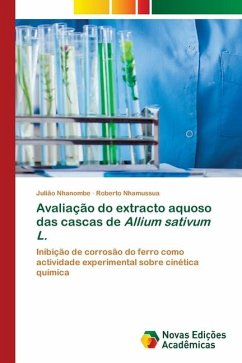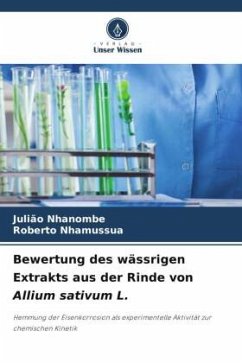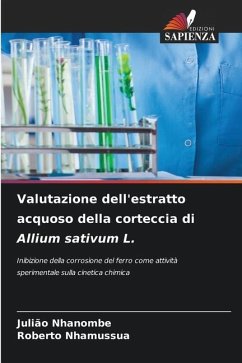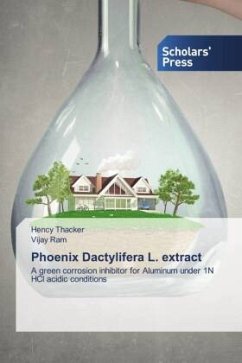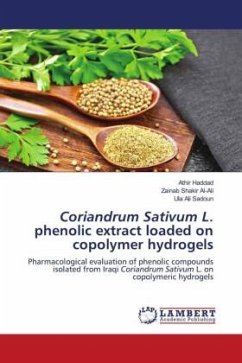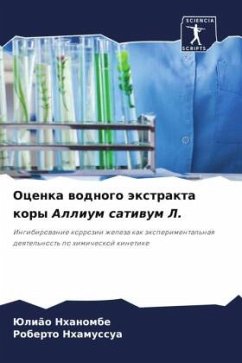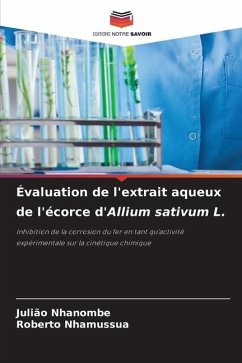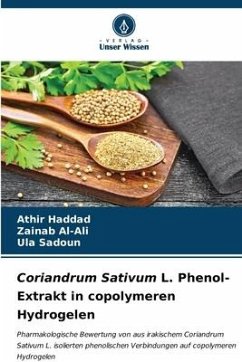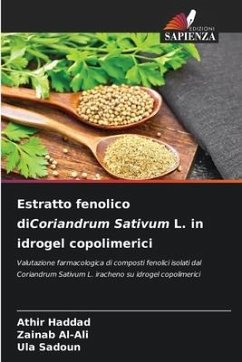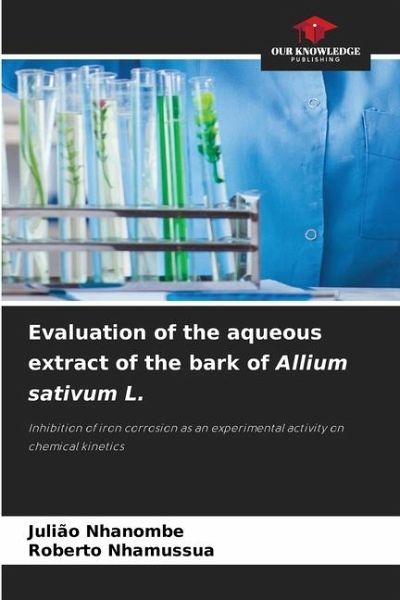
Evaluation of the aqueous extract of the bark of Allium sativum L.
Inhibition of iron corrosion as an experimental activity on chemical kinetics
Versandkostenfrei!
Versandfertig in 6-10 Tagen
29,99 €
inkl. MwSt.

PAYBACK Punkte
15 °P sammeln!
With the intention of making the study of chemistry more enjoyable and thus getting students more interested in the subject, new alternative methods have been offered for carrying out experimental activities. Natural products have been gaining ground in the scientific community in order to reduce the use of synthetic products and consequently reduce the emission of pollutants into the environment. On the other hand, using everyday life to teach chemistry in Mozambican schools has contributed to student-centered teaching, insofar as the content is related to everyday life.The aim of this resear...
With the intention of making the study of chemistry more enjoyable and thus getting students more interested in the subject, new alternative methods have been offered for carrying out experimental activities. Natural products have been gaining ground in the scientific community in order to reduce the use of synthetic products and consequently reduce the emission of pollutants into the environment. On the other hand, using everyday life to teach chemistry in Mozambican schools has contributed to student-centered teaching, insofar as the content is related to everyday life.The aim of this research is to evaluate the aqueous extract of Allium sativum L. bark as an iron corrosion inhibitor in experimental activities on chemical kinetics. The aim is to encourage chemistry teachers, as well as teachers of other areas of the natural sciences, to opt for alternative methods, taking into account locally available material for carrying out experimental activities in order to bring studentscloser to scientific reality and make the teaching-learning process more effective.





